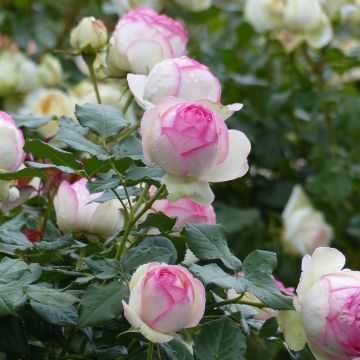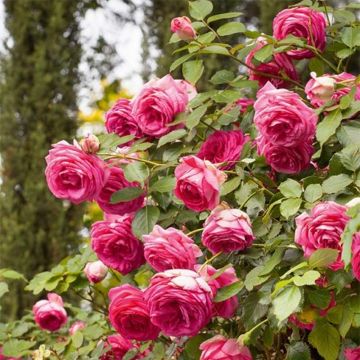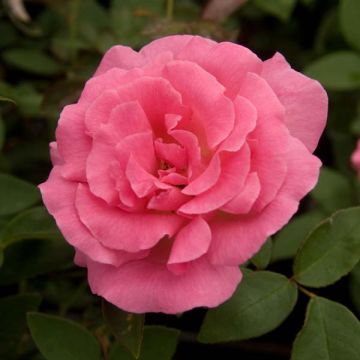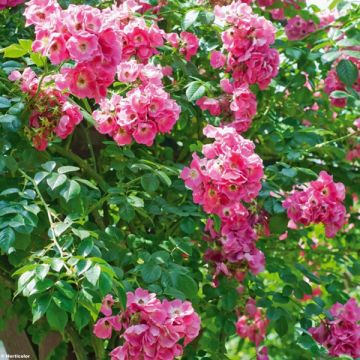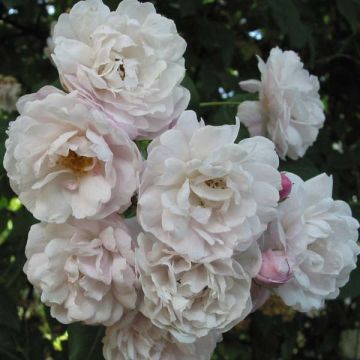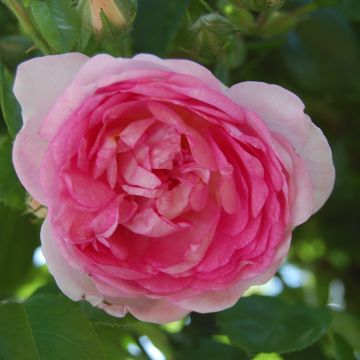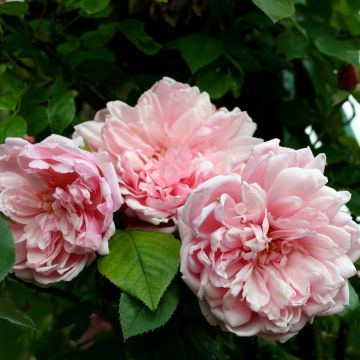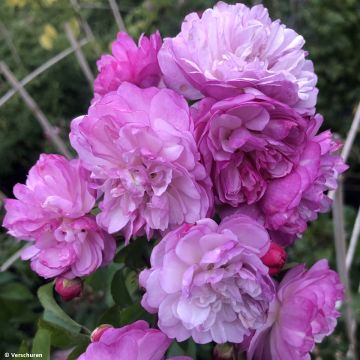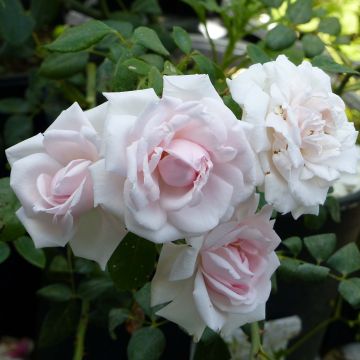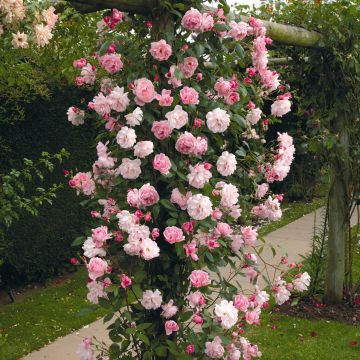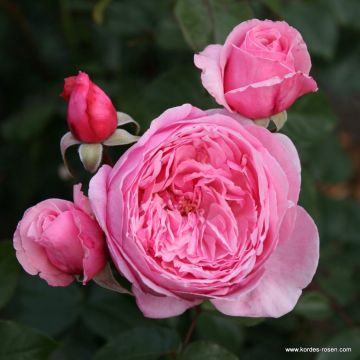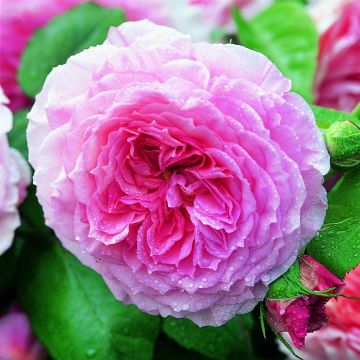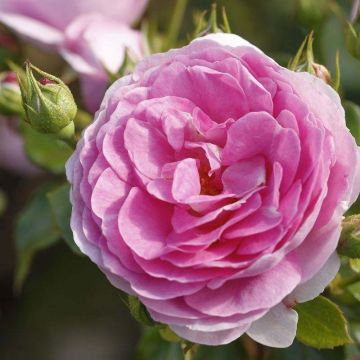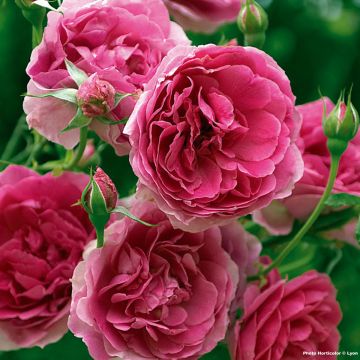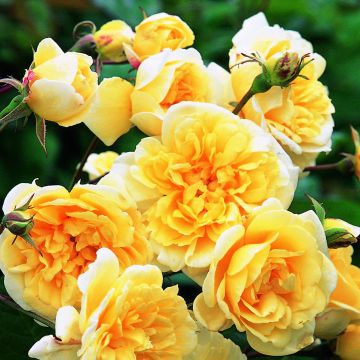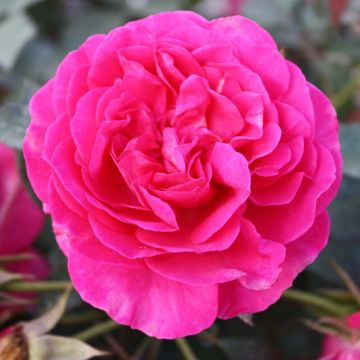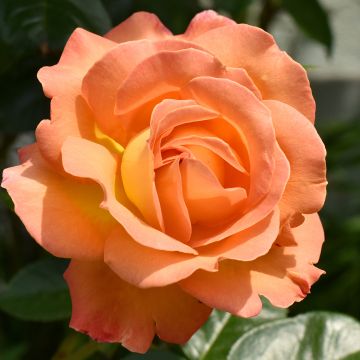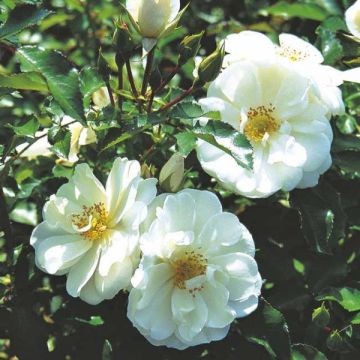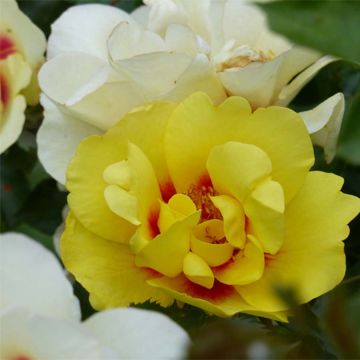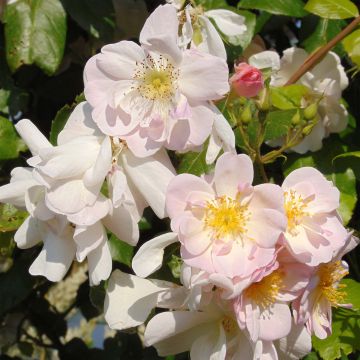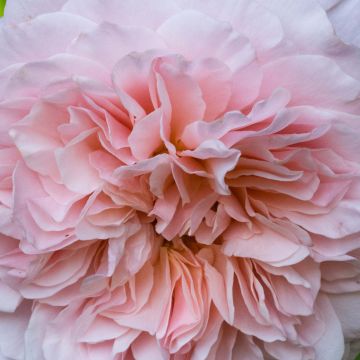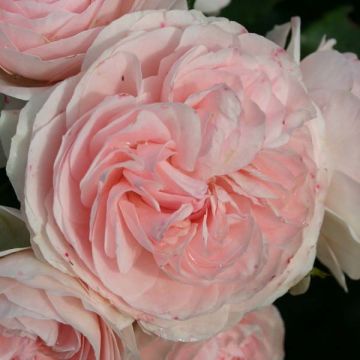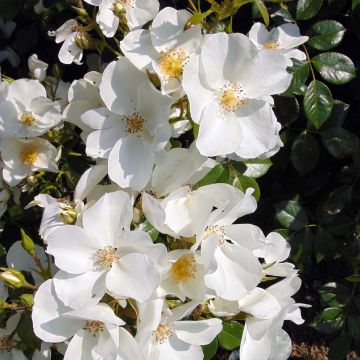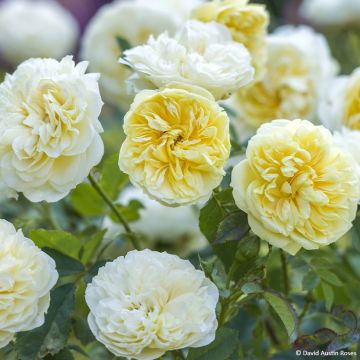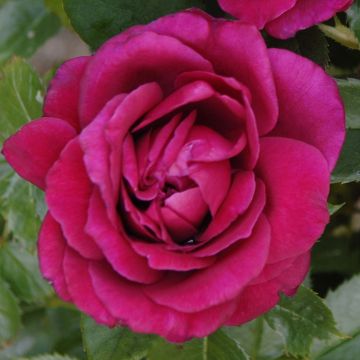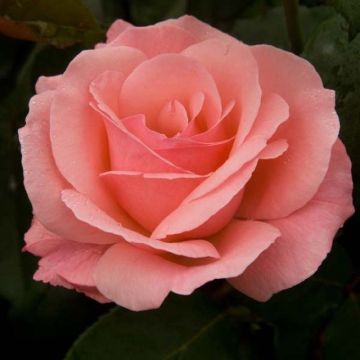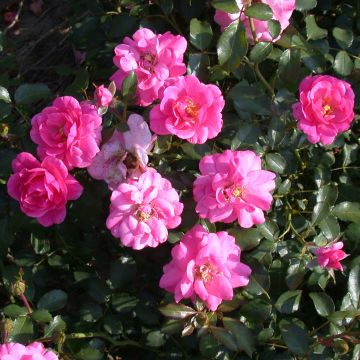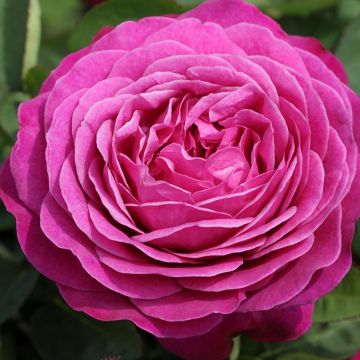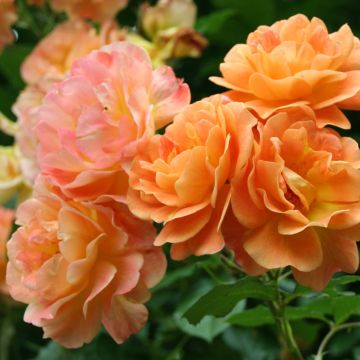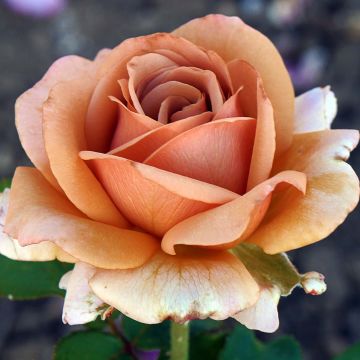Shipping country and language
Your country of residence may be:
Your country of residence is:
For a better user experience on our website, you can select:
Your shipping country:
Andorra
Austria
Belgium
Bulgaria
Canada
Chile
Croatia
Cyprus
Czechia
Denmark
Estonia
Finland
France
Germany
Greece
Hungary
Iceland
Ireland
Italy
Latvia
Lithuania
Luxembourg
Malta
Monaco
Netherlands
Poland
Portugal
Romania
Slovakia
Slovenia
Spain
Sweden
Switzerland
United Kingdom
We only deliver seed and bulb products to your country. If you add other products to your basket, they cannot be shipped.
Language:
French
German
Spanish
English
My Account
Hello
My wish lists
Plantfit
Log in / Register
Existing customer?
New customer?
Create an account to track your orders, access our customer service and, if you wish, make the most of our upcoming offers.
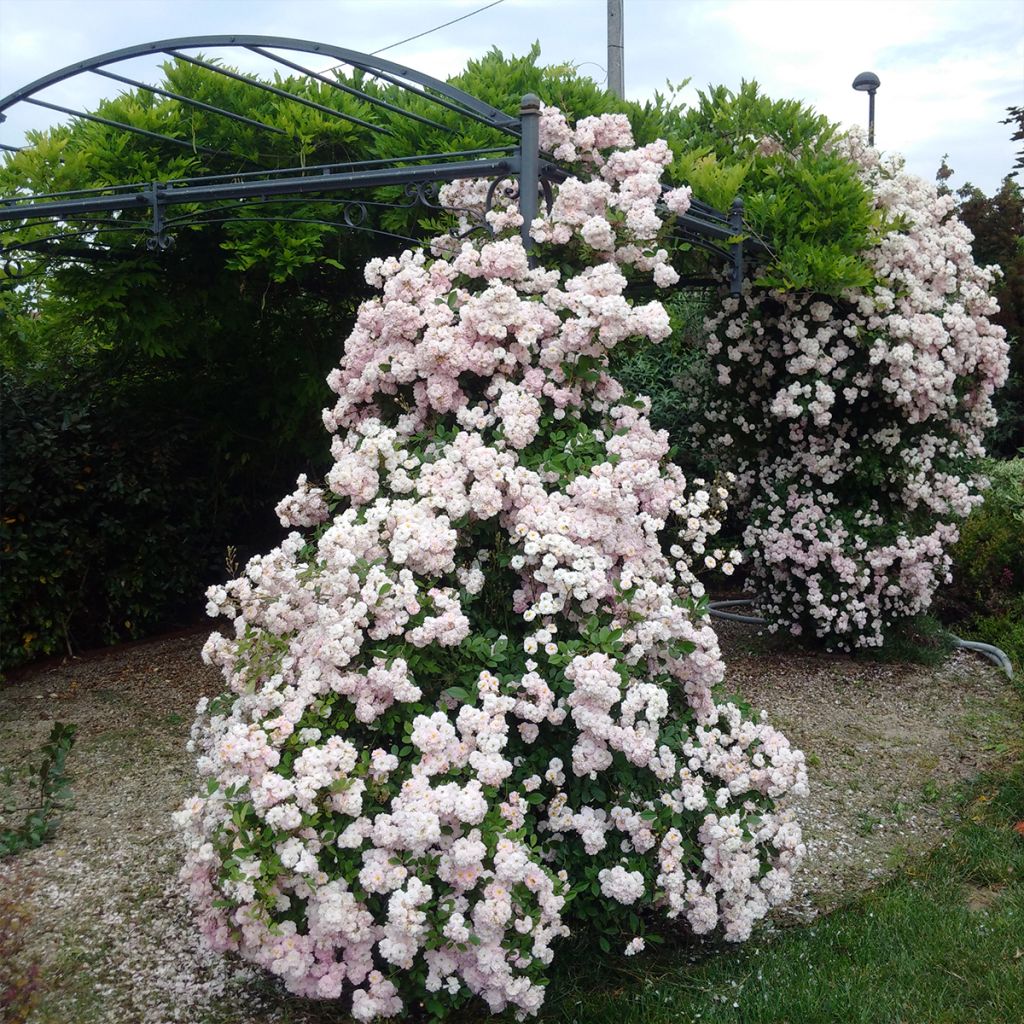

Rosier grimpant Parfum d'Evita 'Barise' (= Brise Parfum)
Rosa Parfum dEvita - Climbing Rose
Rosa Parfum d'Evita 'Barise'
Why not try an alternative variety in stock?
View all →Order in the next for dispatch today!
Dispatch by letter from €3.90.
Delivery charge from €5.90 Oversize package delivery charge from €6.90.
More information
This item is not available in your country.
Schedule delivery date,
and select date in basket
This plant carries a 6 months recovery warranty
More information
We guarantee the quality of our plants for a full growing cycle, and will replace at our expense any plant that fails to recover under normal climatic and planting conditions.
From €5.90 for pickup delivery and €6.90 for home delivery
Express home delivery from €8.90.
From €5.90 for pickup delivery and €6.90 for home delivery
Express home delivery from €8.90.

Does this plant fit my garden?
Set up your Plantfit profile →
Description
The climbing rose 'Parfum d'Evita' is a wonderful Italian creation that combines many qualities. Not very tall, compact yet vigorous, divinely scented and incredibly floriferous from June to October, it also has excellent natural disease resistance. Its small semi-double flowers in pastel pink tones bloom tirelessly in glorious clusters, perfectly highlighted by dark green foliage that remains attractive throughout the season. A vibrant plant, very easy to grow, and versatile, it can also be trained as a large bush according to each gardener's preferences.
The rose 'Parfum d'Evita' or 'Barise' is sometimes marketed under Brise Parfum. It is an excellent creation from Roses Barni (Italy) in 2006. This rose has obtained the highly demanding German ADR label for its ornamental qualities, fragrance, robustness, and excellent disease resistance. This horticultural hybrid belongs to the floribunda rose family, with flowers arranged in clusters. It grows rapidly, developing long woody climbing stems, upright, green, and more or less covered with sharp prickles, flexible enough to be trained. This variety reaches a height of 2.50 to 4 metres (8 to 13 feet) with a spread of 1 metre (3 feet), depending on how it is pruned and trained. Its stems are covered with finely toothed leaflets of a fairly deep green colour. The roses of 'Parfum d'Evita', measuring 5 cm (2in) in width, have the shape of flat cups and are grouped in large clusters. The flowering continues from May-June to November, as long as there is no frost. The flower buds are pink, and the slightly paler flowers, after opening, gradually fade to lilac. At the centre is a bouquet of yellow stamens crowned with white. Their fragrance is delightful, both powdery and fruity. The deciduous foliage falls in autumn.
'Parfum d'Evita' is an excellent rose for small spaces and container cultivation. It gives an incomparable touch to a wall or fence, which it covers with a flowery mantle for months. Like other climbing roses, it is unmatched for adorning a gate, fences, and small pergolas, but it can also be used as a bush by regularly pruning it to encourage branching and limit its height. In this use, it can be paired with white or mauve lilacs, buddleias in the same tones… Its pastel pink flowering blends well with the 'Prince Charles' clematis, blue or Miss Bateman, with white flowers. It is an ideal companion for sheds, giving a charming appeal. Trained on an arch or placed on a terrace, it dresses up any setting without demanding much effort from the gardener who planted it.
Rosa Parfum dEvita - Climbing Rose in pictures
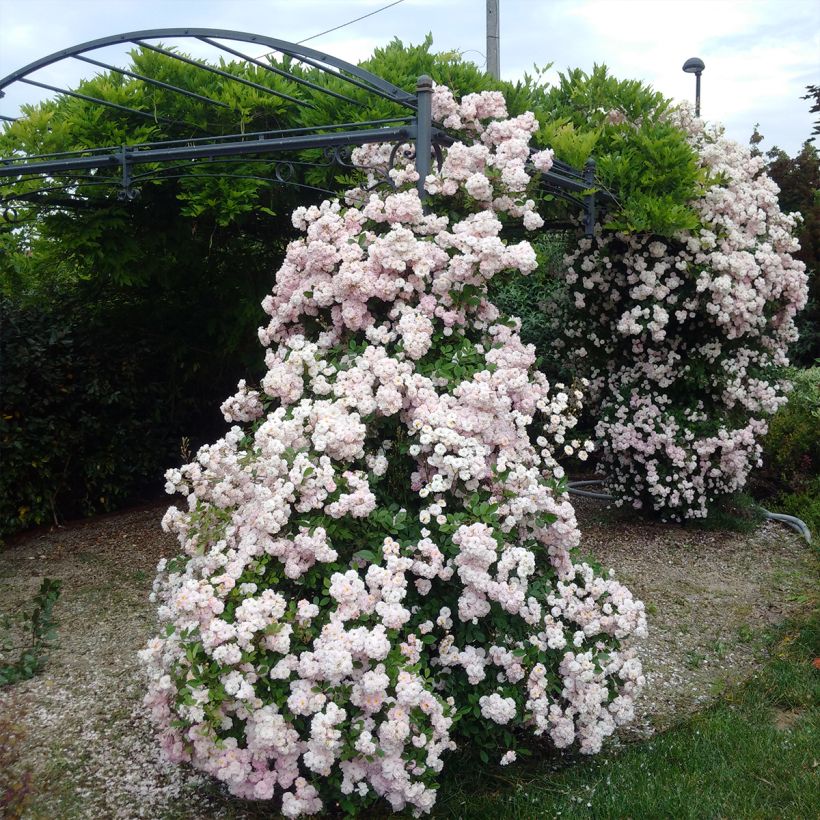

Plant habit
Flowering
Foliage
Botanical data
Rosa
Parfum d'Evita 'Barise'
Rosaceae
Cultivar or hybrid
Other Climbing Roses
Planting and care
The climbing rose 'Parfum d'Evita' prefers sunny locations but is sensitive to scorching and confined exposures, which can make it more susceptible to powdery mildew. It is advised to avoid training it against a south or west-facing wall. While it doesn't thrive in excessive limestone, it can tolerate it. The rose prefers deep, fertile, and relatively fresh soils to reach its full potential.
It is adaptable to any garden if the soil is deep, well-worked, and rich enough. To plant the rose, prepare the soil by breaking it up well and adding an amendment, such as blood, fish, and bone, at the bottom of the planting hole. Water generously after planting to eliminate air pockets. Water regularly for a few weeks to facilitate root development and during the first two dry and hot summers. Pruning of this rose is only necessary to limit its vigour. If its spread bothers you, don't hesitate to reduce the branches.
Planting period
Intended location
Care
This item has not been reviewed yet - be the first to leave a review about it.
Roses by purpose
Haven't found what you were looking for?
Hardiness is the lowest winter temperature a plant can endure without suffering serious damage or even dying. However, hardiness is affected by location (a sheltered area, such as a patio), protection (winter cover) and soil type (hardiness is improved by well-drained soil).

Photo Sharing Terms & Conditions
In order to encourage gardeners to interact and share their experiences, Promesse de fleurs offers various media enabling content to be uploaded onto its Site - in particular via the ‘Photo sharing’ module.
The User agrees to refrain from:
- Posting any content that is illegal, prejudicial, insulting, racist, inciteful to hatred, revisionist, contrary to public decency, that infringes on privacy or on the privacy rights of third parties, in particular the publicity rights of persons and goods, intellectual property rights, or the right to privacy.
- Submitting content on behalf of a third party;
- Impersonate the identity of a third party and/or publish any personal information about a third party;
In general, the User undertakes to refrain from any unethical behaviour.
All Content (in particular text, comments, files, images, photos, videos, creative works, etc.), which may be subject to property or intellectual property rights, image or other private rights, shall remain the property of the User, subject to the limited rights granted by the terms of the licence granted by Promesse de fleurs as stated below. Users are at liberty to publish or not to publish such Content on the Site, notably via the ‘Photo Sharing’ facility, and accept that this Content shall be made public and freely accessible, notably on the Internet.
Users further acknowledge, undertake to have ,and guarantee that they hold all necessary rights and permissions to publish such material on the Site, in particular with regard to the legislation in force pertaining to any privacy, property, intellectual property, image, or contractual rights, or rights of any other nature. By publishing such Content on the Site, Users acknowledge accepting full liability as publishers of the Content within the meaning of the law, and grant Promesse de fleurs, free of charge, an inclusive, worldwide licence for the said Content for the entire duration of its publication, including all reproduction, representation, up/downloading, displaying, performing, transmission, and storage rights.
Users also grant permission for their name to be linked to the Content and accept that this link may not always be made available.
By engaging in posting material, Users consent to their Content becoming automatically accessible on the Internet, in particular on other sites and/or blogs and/or web pages of the Promesse de fleurs site, including in particular social pages and the Promesse de fleurs catalogue.
Users may secure the removal of entrusted content free of charge by issuing a simple request via our contact form.
The flowering period indicated on our website applies to countries and regions located in USDA zone 8 (France, the United Kingdom, Ireland, the Netherlands, etc.)
It will vary according to where you live:
- In zones 9 to 10 (Italy, Spain, Greece, etc.), flowering will occur about 2 to 4 weeks earlier.
- In zones 6 to 7 (Germany, Poland, Slovenia, and lower mountainous regions), flowering will be delayed by 2 to 3 weeks.
- In zone 5 (Central Europe, Scandinavia), blooming will be delayed by 3 to 5 weeks.
In temperate climates, pruning of spring-flowering shrubs (forsythia, spireas, etc.) should be done just after flowering.
Pruning of summer-flowering shrubs (Indian Lilac, Perovskia, etc.) can be done in winter or spring.
In cold regions as well as with frost-sensitive plants, avoid pruning too early when severe frosts may still occur.
The planting period indicated on our website applies to countries and regions located in USDA zone 8 (France, United Kingdom, Ireland, Netherlands).
It will vary according to where you live:
- In Mediterranean zones (Marseille, Madrid, Milan, etc.), autumn and winter are the best planting periods.
- In continental zones (Strasbourg, Munich, Vienna, etc.), delay planting by 2 to 3 weeks in spring and bring it forward by 2 to 4 weeks in autumn.
- In mountainous regions (the Alps, Pyrenees, Carpathians, etc.), it is best to plant in late spring (May-June) or late summer (August-September).
The harvesting period indicated on our website applies to countries and regions in USDA zone 8 (France, England, Ireland, the Netherlands).
In colder areas (Scandinavia, Poland, Austria...) fruit and vegetable harvests are likely to be delayed by 3-4 weeks.
In warmer areas (Italy, Spain, Greece, etc.), harvesting will probably take place earlier, depending on weather conditions.
The sowing periods indicated on our website apply to countries and regions within USDA Zone 8 (France, UK, Ireland, Netherlands).
In colder areas (Scandinavia, Poland, Austria...), delay any outdoor sowing by 3-4 weeks, or sow under glass.
In warmer climes (Italy, Spain, Greece, etc.), bring outdoor sowing forward by a few weeks.
